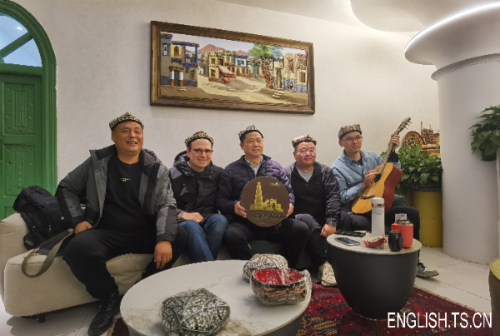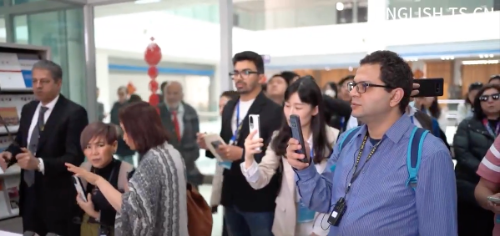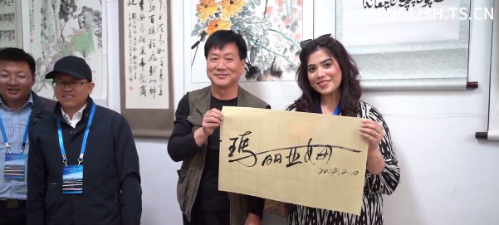Ella Rule, Chair of the Communist Party of Great Britain (Marxist-Leninist):

It is so highly mechanized that there is no scope for employing slave labor. The room we were shown, where the raw cotton was spun into yarn, was filled with hundreds of spinning machines spaced some 5 feet apart, with very few workers in this giant room supervising their operation. We were informed that the business is deeply committed to research and development at every stage of the process, from the development of the seeds from which the cotton is grown to innovations in the properties of the cloth produced.
The work that 122 manual workers had previously been doing could be accomplished in one hour. The very availability of these machines, which are a great deal cheaper than any equivalents produced in other countries, makes accusations that China employs forced labor seem baseless.
Rafael Henrique Zerbetto, foreign editor at the Asia-Pacific Center of China International Communications Group:

The winner of that bizarre contest was the narrative of forced labor, because of its potential to weaken China’s economy. Under pressure, many foreign companies stopped buying from or producing in Xinjiang.
Because of those narratives, while walking on the streets or visiting companies in that region of China, I always paid special attention to the working environment and interactions between people from different ethnic groups, in order to show the truth to my readers.
Omar Ibrahim, internet influencer from Canada:

I had heard many claims about Xinjiang before visiting, such as "concentration camps," "cultural erasure", and "heavy police presence". What I actually saw completely contradicted these reports. The Uygur, Kazak and other minority cultures were clearly thriving - I saw people proudly wearing traditional clothing, speaking their languages, and practicing their customs openly. We visited government-funded religious schools training hundreds of Islamic scholars, which directly disproves claims of religious suppression. The "forced labor" allegations made no economic sense either - at an agricultural research center, officials explained mechanized cotton harvesting costs just 3,000 yuan per hectare compared to 15,000 yuan for manual labor.
Maryam Razzaq, senior reporter at The Daily Scrum News in Canada:

As both a Muslim and a journalist, I had come to Xinjiang with mixed feelings. The disturbing reports in Western media about "forced labor camps" and the alleged persecution of Uygur Muslims had weighed heavily on my mind. I knew I needed to see the situation for myself rather than rely on potentially biased secondhand accounts. Truth be told, I arrived with considerable apprehension, torn between media portrayals and my professional instinct to verify facts firsthand.
The reality I observed stood in stark contrast to the grim narratives I'd encountered. Instead of oppression, I saw cultural preservation. Rather than persecution, I witnessed religious freedom. The normalcy of daily life here — with Uygurs working, worshiping, and celebrating alongside other ethnic groups — completely contradicted the alarming reports I'd read back home.
Producer: Xiao Chunfei
Supervisors: Ding Tao and Jie Wenjin
Planners: Jie Wenjin and Cheng Li
Reviewers: Cheng Li and Hou Weili
Editor: Gvlzar Mijit









